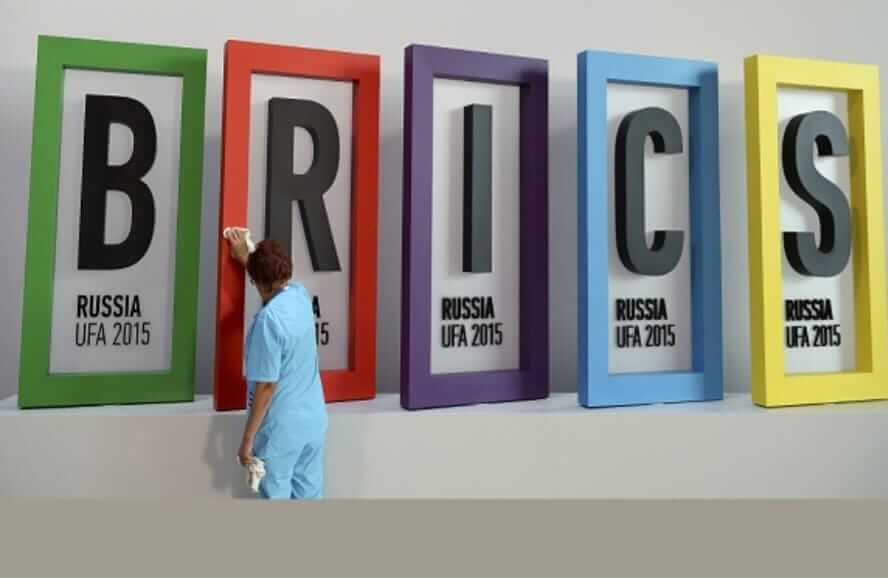Russia always knows what is better for Serbia, and it knows this better than Serbia. Serbia thinks it is best to join the European Union and has signed agreements, but Moscow does not give up on explaining that this is not the best idea.
After a long break, Moscow continued to persuade Serbia that applying for membership in BRICS would not be a bad idea. The idea came from a Russian “non-governmental” sector expert studying international relations. Ivan Timofeev from the Russian International Affairs Council said recently that “the option of Serbia’s accession to BRICS is self-imposed.”
First of all, we need to know that Mr Timofeev studies international relations on behalf of the Russian government, which appointed him. The chairman of the board of his International Affairs Council is Sergey Lavrov. Andrei Fursenko, Vladimir Putin’s adviser, and, for example, Herman Gref, the president of Sberbank, are board members.
No institute has invited Serbia to BRICS, but the Kremlin directly. The option of Serbia’s membership in this block has not been a result of expert research but a political decision from the top of the Russian state.
This is a typical Russian attempt to see how Serbia will “take” some of their ideas regarding what is best for Serbia. This has been marketed through a neutral intermediary, sometimes through a respected journalist, sometimes through a friend from a third country, and most often through the “analysis” of someone from the army of Moscow experts on the Balkans and Serbia. Behind such ideas, without fail, has been the government in Moscow.
One such idea came to President Vučić in the spring of 2019 through Yevgeny Primakov, a journalist at the time, to form a transitional government with Dragan Đilas and Boško Obradović because of the ongoing street protests by the opposition. Vučić kicked him out, and rightfully so. The grandson of the former Russian prime minister was soon appointed the head of Rossotrudnichestvo, the state organisation for international cooperation.
It is also possible that Ivan Timofeev from the International Affairs Council will soon receive a state function and, like Primakov, stop pretending to be something he is not. But for us, it is much more significant to read carefully why he and his country have been advocating Serbia’s entry into BRICS.
Moscow expects a lot of discussion in Serbia regarding this quiet initiative, taking into account that the government, particularly President Vučić, do not listen to the masses wishing for rapprochement with Russia. When we say “discussion”, it means increasing internal pressure on the Serbian president.
This will not be difficult. BRICS has been presented to our public as a healthy alternative to Western hegemony, consisting of free and independent countries. Even the most influential national media talk about it as a tempting alternative, describing its members as economic and political forces in full swing.
You cannot hear in Serbia that BRICS has been a loose structure since its beginnings about 15 years ago, that they did not even come up with their own name, but the chief economist of Goldman Sachs, Jim O’Neill, was the one who named them in one of his articles.
They have not advanced an inch in their epoch-making idea to exclude the dollar from international trade, which is mainly the reason they gathered. There have been no conversations about the fact that it is uncertain whether the BRICS summit will even take place in South Africa in August because it still does not know what to do if Vladimir Putin, for whom an international warrant has been issued because of war crimes in Ukraine, appears as a guest. The host, as a signatory to the statute of the International Criminal Court, is obliged to arrest Putin. Perhaps they will meet via Zoom, as recently at the Shanghai Cooperation Organisation Summit. Even though there have been no restrictions due to Covid-19 for a long time, there are indictments and international warrants for one of the main participants.
BRICS has not achieved any of its ideas, nor will it, because it was established as a “nyet” club, not as a group offering alternatives, as it falsely presents itself.
Also, its work has been paralysed by the fact that Russia, as one of the founders, has become the most isolated country in the world, exiled from almost all significant world forums and legal world trade. Its African half-satellite South Africa has poor economic records, in unemployment, for example, (over 30%) or in the decline of investments (about 40%). The remaining partners, China and India, in the race for primacy in their regions, and due to unresolved border issues, cannot agree on anything significant.
Russia wants to push Serbia into such a wreck of an organisation, because only Russia and its traditionally destructive policy towards Belgrade need it. They do not care about the fact that Serbia explicitly rejected the possibility of joining BRICS (Ivica Dačić last December) because it is incompatible with its entry into the EU as its major foreign policy goal.
Russia is not giving up and is treading on Serbia’s position because it is not interested in Serbia’s position. Moscow has been pushing their agenda for Serbia to be permanently separated from Europe, from stability, investments and progress, because only a poor and isolated Serbia is a good Serbia for Russia.
The bait with the BRICS membership story is part of that strategy, but for them, unfortunately, unsuccessful again. They will probably never understand that they cannot know better than Serbia what is better for Serbia.
